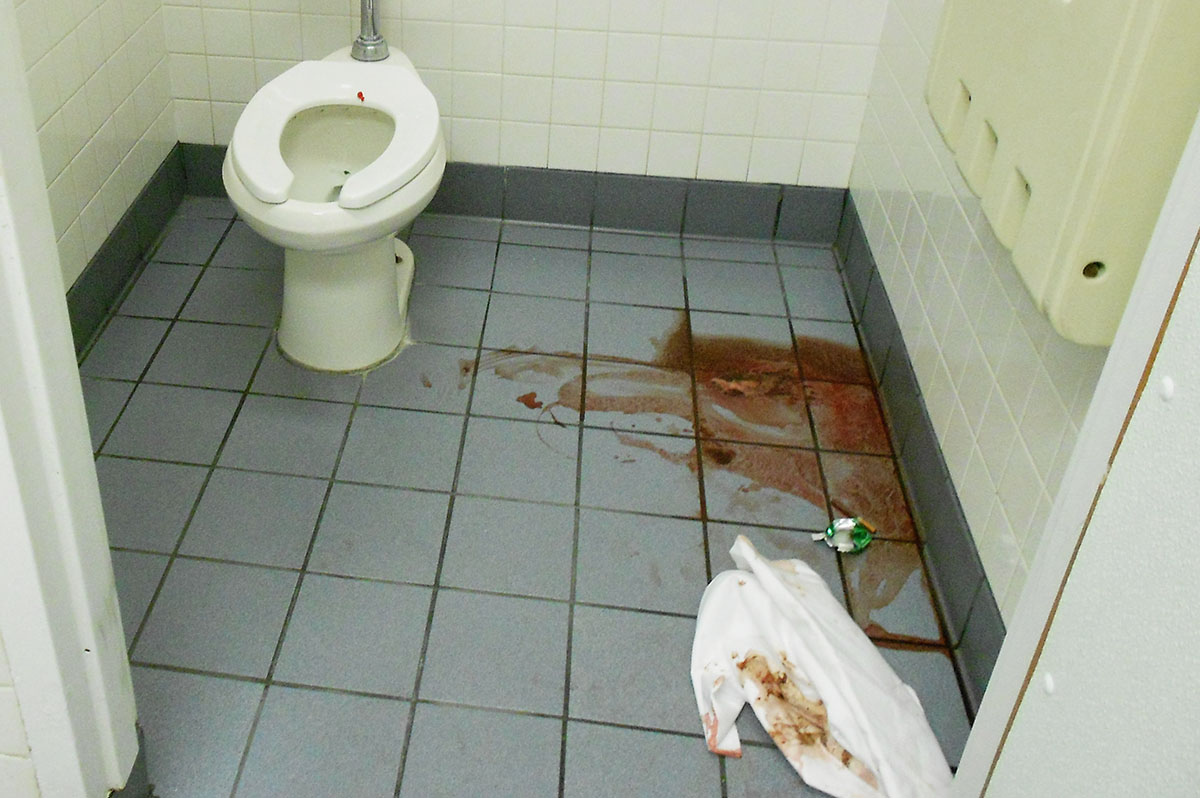Our Services
Caring & Compassionate Service
Licensed & Insured, Bio-Trauma 911, Inc. responds to incidents requiring crime scene cleanup and blood cleanup. Crime scenes present a unique combination of problems for detectives and medical examiners, as well as for those tasked with cleaning the aftermath of a crime, commonly referred to as crime scene cleanup.
Once removed, a body leaves behind both visual and microscopic traces that can prove harmful to those who may come into contact with them. Although the appearance of blood, bodily fluids and tissue warrants a thorough cleaning effort, it requires much more than simply wiping it up. This is where our crime scene cleanup technicians can help.
Crime scene cleanup involves a detailed procedure to detect, disinfect and completely remove all traces of bio-hazardous materials, to include but not limited to: blood, bodily fluids, tissue & bone matter, contaminated clothing and household goods, hypodermic needles, razor blades and other items that may pose a risk of injury or death. Although a visual inspection of a crime scene or a suicide scene may reveal a great deal of blood and bodily fluids about the area, an equal amount will be found by our technicians in areas that cannot be seen or easily accessed. It is vital that all traces of these elements be removed from a scene, whether a crime has been committed or not.
Technicians with Bio-Trauma 911, Inc. have received extensive training in crime scene cleanup, trauma scene cleanup, blood cleanup and in the use of various chemicals, all of which are OSHA approved and completely safe. In conjunction with specialized training in the detection and removal of biohazard materials, our technicians will restore your house or place of business to a safe environment.
Please, before you attempt to clean a crime scene or a scene affected by a suicide or decomposition, speak with a trained & certified technician. We have trained personnel standing by 24 hours a day to answer your questions. You will never be charged for your phone call or for asking questions. We are here to help you!
Steps to Take
If your family member or business associate has fallen victim to a criminal act, such as a homicide, please follow the steps that apply below to assist us in helping you.
Service Quality
The team at Bio-Trauma 911, Inc. has been remediating crime and trauma scenes for nearly 20 years. During this time, we have developed cleaning techniques that have proven effective in removing and eliminating all traces of blood and other biohazards. If you have any questions as to whether or not we can safely and adequately remediate a scene, we encourage to call us at 1-800-759-6960 or use the chat button at the bottom right of this screen.


Have Questions?
Crime scene cleanup service is typically covered by insurance
Bio-Trauma 911, Inc. works with several different insurance companies, therefore we are often able to bill your insurance company directly. If insurance covers the cost of our services, the only payment required from you will be your policy deductible. If insurance coverage is not available, we do offer several different payment plans, which generally suit most budgets.
